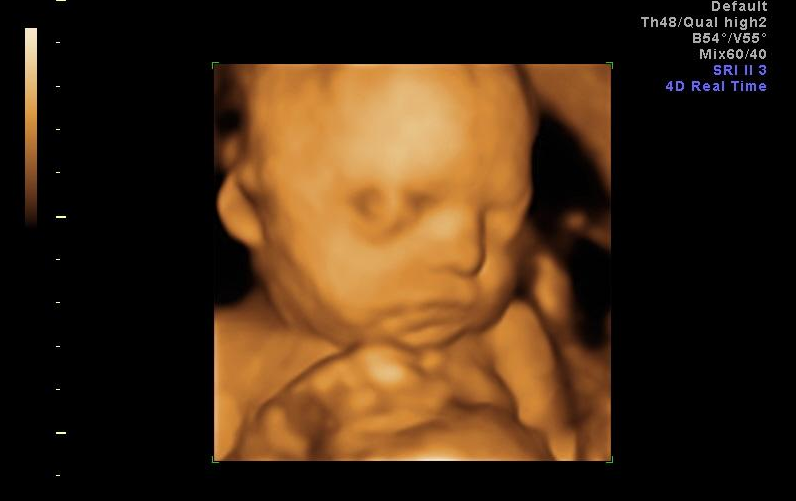Wisconsin is one of the states with a pre-Roe abortion ban on the books that immediately went into effect following the Supreme Court decision to overturn Roe v. Wade.
The century-old state law protects unborn babies by banning abortions unless the mother’s life is at risk. The law states that “any person, other than the mother, who intentionally destroys the life of an unborn child” may be charged with a felony and face up to six years in prison.
The abortion ban would protect thousands of babies from abortions because, according to the state Department of Health Services, 6,511 unborn babies were aborted in 2019.
Governor Tony Evers is fighting in court to get rid of the abortion ban, but Republican state legislators told the court today to keep it in place. Here’s more:
Kaul’s lawsuit argues that the ban conflicts with a 1985 Wisconsin law that allows abortions before a fetus has grown enough that it could survive outside the womb. That point in time is unclear; some physicians say it’s about 20 weeks, others around 28 weeks.
The attorney general also argues that the ban is unenforceable because it has become obsolete.
Follow LifeNews on the Parler social media network for the latest pro-life news!
Senate President Chris Kapenga, Senate Majority Leader Devin LeMehieu and Assembly Speaker Robin Vos, all named defendants, filed a motion to dismiss the lawsuit in Dane County Circuit Court.
They argue in their motion that the statutes enacting the ban remain in effect regardless of the 1985 law, Kaul’s argument that the ban is so old it’s no longer enforceable lacks any legal foundation and that the Legislature lacks any authority to enforce the ban. They also maintain that the plaintiffs lack legal standing to sue because they’re not private citizens in fear of the ban being enforced against them.
The case will likely end up in front of the Wisconsin Supreme Court, which has a 4-3 conservative majority.
Meanwhile, Planned Parenthood announced that it stopped scheduling abortions in Wisconsin starting Saturday in anticipation that the state abortion ban will go back into effect.
Wisconsin has a pro-life Republican majority in the state legislature and a pro-abortion Democrat governor. Over the past several years, the legislature has passed a number of pro-life bills, including one to protect newborns who survive abortions from infanticide, but Evers has vetoed them.
As LifeNews reported, the Supreme Court overturned Roe v. Wade, with a 6-3 majority ruling in the Dobbs case that “The Constitution does not confer a right to abortion” — allowing states to ban abortions and protect unborn babies. The high court also ruled 6-3 uphold the Mississippi 15-week abortion ban so states can further limit abortions and to get rid of the false viability standard.
Chief Justice John Roberts technically voted for the judgment but, in his concurring opinion, disagreed with the reasoning and said he wanted to keep abortions legal but with a new standard.
Texas and Oklahoma had banned abortions before Roe was overturned and Missouri became the first state after Roe to protect babies from abortions and South Dakota became the 2nd. Then Arkansas became the third state protecting babies from abortions and Kentucky became the 4th and Louisiana became the 5th and Ohio became the 6th and Utah became the 7th and Oklahoma became the 8th and Alabama became the 9th. This week, Mississippi became the 10th and South Carolina became the 11th,Texas became the 12th with its pre-Roe law and Tennessee became the 13th.
Michigan, Wisconsin and West Virginia have old pro-life laws on the books but there is question about whether they are applicable and will be enforced.
Ultimately, as many as 26 states could immediately or quickly ban abortions and protect babies from certain death for the first time in nearly 50 years.
The 13 total states with trigger laws that would effectively ban all or most abortions are: Arkansas, Idaho, Kentucky, Louisiana, Missouri, Mississippi, North Dakota, Oklahoma, South Dakota, Tennessee, Texas, Utah and Wyoming.
“Abortion presents a profound moral question. The Constitution does not prohibit the citizens of each State from regulating or prohibiting abortion. Roe and Casey arrogated that authority. We now overrule those decisions and return that authority to the people and their elected representatives,” Alito wrote.
“Roe was egregiously wrong from the start. Its reasoning was exceptionally weak, and the decision has had damaging consequences,” Alito wrote. “And far from bringing about a national settlement of the abortion issue, Roe and Casey have enflamed debate and deepened division.”
Justices Sonia Sotomayor, Elena Kagan and Stephen Breyer authored a joint dissent condemning the decision as enabling states to enact “draconian” restrictions on women.
Polls show Americans are pro-life on abortion and a new national poll shows 75% of Americans essentially agree with the Supreme Court overturning Roe.
Despite false reports that abortion bans would prevent doctors from treating pregnant women for miscarriages or ectopic pregnancies, pro-life doctors confirm that is not the case. Some 35 states have laws making it clear that miscarriage is not abortion and every state with an abortion ban allows treatment for both.








